Search Results
Showing results 1 to 17 of 17

Up and Down Donkey
Source Institutions
In this game, learners build up six stacks of cards in the middle of the table, face up, in order from 1 at the bottom to 20 on the top. The first player to get rid of all his cards is the winner.
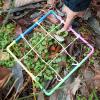
Counting With Quadrants
Source Institutions
Millions of organisms can live in and around a body of water.
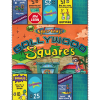
Gollywood Squares Game
Source Institutions
In this Cyberchase activity, roll the die and count off spaces on the game board to earn money and collect CyberSquad autographs. To win the game, be the first to buy four different autographs.
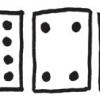
Count the Dots: Binary Numbers
Source Institutions
Data in computers is stored and transmitted as a series of zeros and ones. Learners explore how to represent numbers using just these two symbols, through a binary system of cards.
Fair Shares: Predict Equal Shares
Source Institutions
Use this activity to build division and number sense into any snack time or whenever there is a limited set of things to share among a group: If we deal these out, could everyone get two pieces?
Race to the Dollar
Source Institutions
In this math activity, learners play a card game to practice adding coins quickly, just like a banker. First, learners create coin cards. Next, the cards are dealt to each player.
Many Seeds: Estimating Hidden Seeds
Source Institutions
In this activity, learners will estimate how many seeds are in a fruit or vegetable, then count to find out. The result: mix estimation with healthy eating.

Counting Your Lucky Stars
Source Institutions
In this activity, learners sample a star field to estimate the number of stars in the universe.

Cactus Wheel
Source Institutions
In this outdoor activity/field trip, learners explore the concept of population density.
Counting Books: Make Your Own!
Source Institutions
On the first night, I saw 5 stars in the desert. On the second night, I saw 10… What do you think I saw on the third night? Combine arts and crafts, literacy, and math by making a counting book.
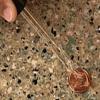
Penny Drop
Source Institutions
In this quick activity about the properties of water (page 1 of PDF under SciGirls Activity: Malformed Frogs), learners will use an eyedropper to slowly place one drop of water at a time onto a penny,

Dirt Life
Source Institutions
After an interest-generating discussion about "dirt" and microbes, learners select and collect soil samples from a variety of locations (schoolyard, home, etc.).
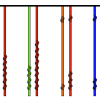
Quipus
Source Institutions
Learners create an Incan counting device called a quipu (pronounced kee-poo).

Zoo Calendar
Source Institutions
Use the Zoo Calendar (page 1 of PDF) to involve learners in interdisciplinary, whole language, and writing activities about ecological concepts.
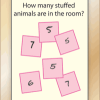
Count Around
Source Institutions
Learners explore their surroundings while reasoning about categories and counting.

FAMILY MATH on the Go
Source Institutions
This assortment of mathematical games can be played while traveling.
Look Around: Hunt For Sizes, Shapes and Numbers
Source Institutions
In this activity, learners will participate in a scavenger hunt involving sizes, shapes, and numbers. This activity works well with a whole group, individuals, or families.
